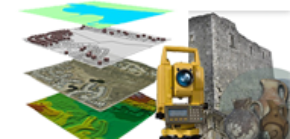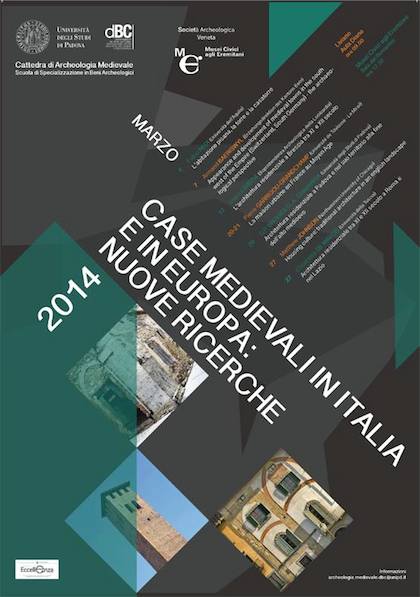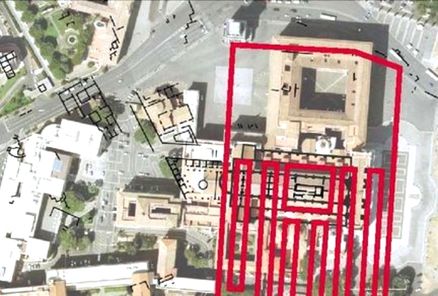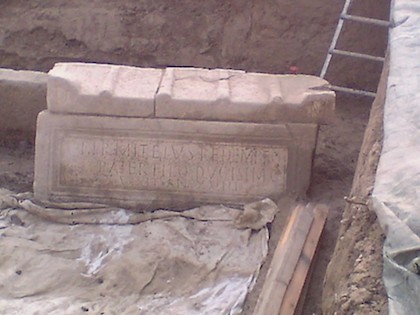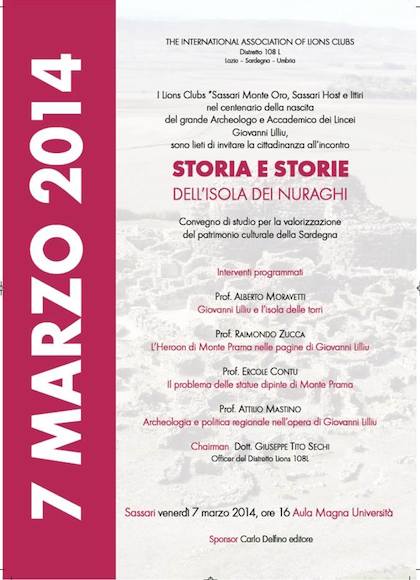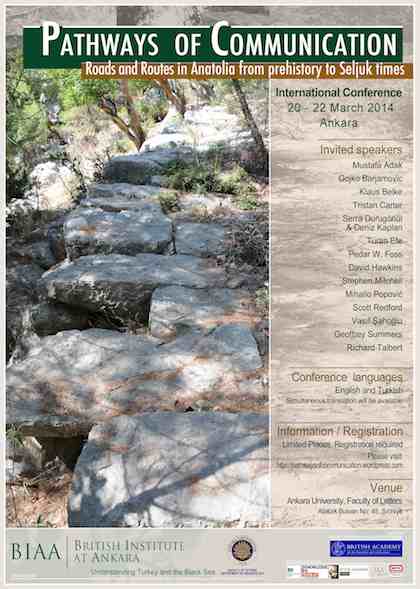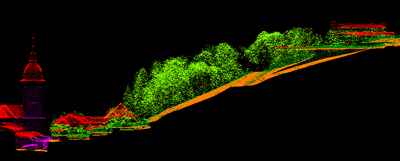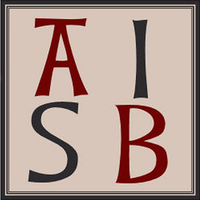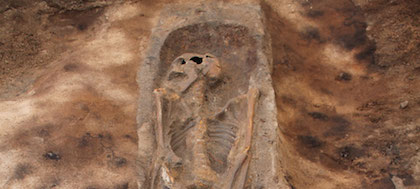UNIVERSITA’ DI PADOVA, DIPARTIMENTO DEI BENI CULTURALI, CATTEDRA DI ARCHEOLOGIA MEDIEVALE Ciclo di Seminari MARZO 2014: LA CASA MEDIEVALE IN ITALIA E IN EUROPA: NUOVE RICERCHE Nell’ambito del progetto ARMEP (Architettura Residenziale Medievale di Padova) vi invitiamo ad una serie di conferenze di prestigiosi specialisti italiani (F. Redi, A. Breda, E. De Minicis, G.P. Brogiolo) e stranieri (A. Baeriswyl, P. Garrigou-Grandchamp, M. Johnson) che presenteranno le novità della ricerca sull’architettura residenziale urbana medievale: dalle analisi spaziali tramite GIS, all’analisi funzionale e sociale e della distribuzione degli spazi, alle caratteristiche architettoniche…
Read MoreMese: Febbraio 2014
I “Castra nova equitum singularium” rivelati sotto la Basilica di San Giovanni in Laterano
Ci son voluti tre anni di campagne di indagini col georadar. Ma ora le memorie dal sottosuolo di San Giovanni in Laterano hanno un’identità chiara. Un patrimonio che racconta la storia della basilica prima che diventasse «la basilica» di Costantino. Serve fare un piccolo salto indietro nel tempo, a quando l’area del Laterano era stata scelta dall’imperatore Settimio Severo (II-III secolo d.C.) per erigere i suoi «Castra nova equitum singularium», ossia la caserma dei cavalieri scelti. Dai sotterranei dell’area della basilica riaffiorano oggi porzioni finora sconosciute del grande corpo della…
Read MoreScientists reveal cause of one of the most devastating pandemics in human history
An international team of scientists has discovered that two of the world’s most devastating plagues – the plague of Justinian and the Black Death, each responsible for killing as many as half the people in Europe—were caused by distinct strains of the same pathogen, one that faded out on its own, the other leading to worldwide spread and re-emergence in the late 1800s. These findings suggest a new strain of plague could emerge again in humans in the future. “The research is both fascinating and perplexing, it generates new questions…
Read MoreRinvenuta necropoli a Concordia
Una testimonianza dell’antichità emerge dalle nebbie del tempo. Un imponente complesso monumentale funerario del III secolo d.C. in ottimo stato di conservazione è stato scoperto nel corso di una campagna di scavo a Concordia Sagittaria, fuori dalle antiche mura di quella che fu la colonia romana di Iulia Concordia. I risultati della ricerca archeologica e la valenza dei resti sono stati illustrati venerdì nel corso di una visita guidata al cantiere di restauro a Gruaro. Sono intervenuti Clara Peranetti, dirigente dell’unità Complessità Progetti strategici e politiche comunitarie della Regione del Veneto, Alberto Vigoni, archeologo…
Read MoreStoria e storie dell’Isola dei Nuraghi
Il convegno intende celebrare il centenario della nascita (13 marzo 1914) del grande Archeologo e Accademico dei Lincei Giovanni Lilliu, scomparso il 19 febbraio 2012. Interventi del Magnifico Rettore Prof. Attilio Mastino, Alberto Moravetti, Ercole Contu e Raimondo Zucca. L’incontro è promosso dai Lions Clubs Sassari Monte Oro, Sassari Host ed Ittiri Venerdì 7 marzo, alle ore 16, Aula Magna dell’Università di Sassari.
Read MorePathways of Communication
International Conference Pathways of Communication Roads and Routes in Anatolia from Prehistory to Seljuk Times Ankara, 20 – 22 March 2014 Conference venue: Ankara University, Faculty of Letters – Atatürk Bulvarı n. 45 | Sıhhiye Invited speakers: M. Adak, G. Barjamovic, K. Belke, T Carter, S. Durugönül & D. Kaplan, T. Efe, P. Foss, D. Hawkins, S. Mitchell, M. Popovic, S. Redford, V. Şahoğlu, G. Summers, R. Talbert vai al sito
Read MoreCAA UK 2014 – Call for Papers
Computer Applications and Quantitative Methods in Archaeology, UK Chapter Meeting 2014 The next annual meeting of the UK Chapter of Computer Applications and Quantitative Methods in Archaeology (CAA-UK) will be held in Oxford on 21st and 22nd March 2014. CAA-UK aims to encourage communication between UK-based archaeologists, mathematicians and computer scientists in order to stimulate research and promote best practice in computational and mathematical approaches to the past. Computational and statistical approaches have become an essential part of the tool-kit, so much so that they have become de rigueur. Whilst it has often…
Read MoreTRAIL 2014 – Training and Research in the Archaeological Interpretation of Lidar
The TRAIL 2014 workshop focuses on the role of forests in archaeological research, cultural heritage management frameworks, and our perception of past and present landscapes in light of the proliferation of lidar surveys over the past decade. The expansion of lidar survey coverage across the globe is rapidly and substantially altering the information base used in the study and management of forests and the ways in which we engage with these parts of the landscape. Over the course of three days papers, posters, workshops, and discussions will highlight: – Integration…
Read MorePremio di Laurea – Bisanzio in Italia (AISB e Rotary 2100)
Il Distretto Rotary 2100, col patrocinio culturale e scientico dell’Associazione Italiana di Studi Bizantini (AISB), bandisce un Premio di euro 1000 da conferire all’autore di una tesi di Laurea di secondo livello (Specialistica/Magistrale), che affronti una tematica relativa alla presenza e alla eredità della civiltà bizantina in Italia, in tutti i suoi aspetti. Il Premio ha lo scopo di valorizzare una parte importante delle radici culturali dell’Italia fra VI e XV secolo e di premiare l’impegno culturale delle nuove generazioni. Scarica il regolamento
Read MoreEARLY CHRISTIANS IN VIKING DENMARK
Excavations at the Domskirke in Ribe, Denmark began in 2008 and analysis of the results lend new insight into early Christianity, where this may have been one of the first places in the country where a small enclave of Christians worshipped and died. Studies have now shown that there may have been Christian Vikings in Ribe around AD865. Denmark officially became a Christian country around the year AD965 when Harald Bluetooth announced his deed on the Jelling stone (see below). It now seems possible that 100 years before this countrywide…
Read More